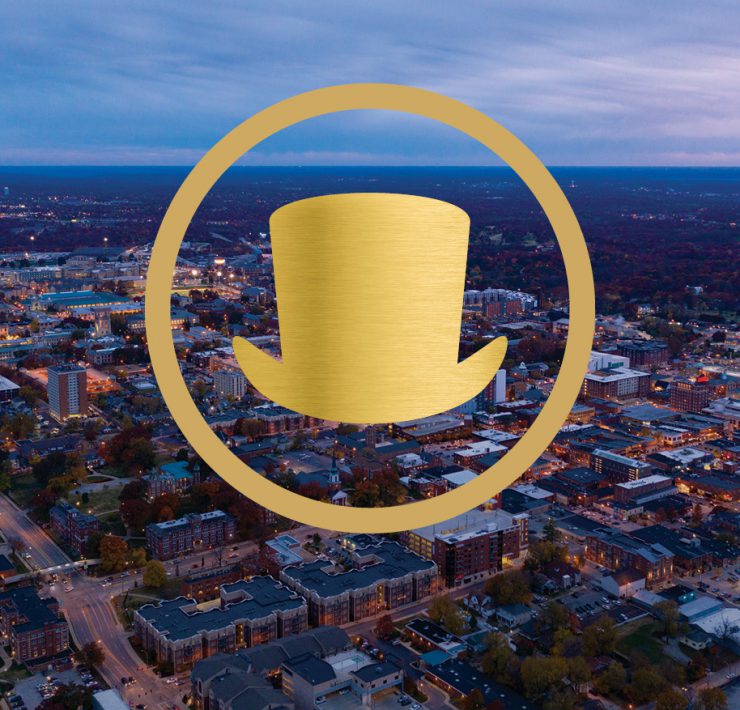The Impact of Truman Memorial Veterans’ Hospital
- photos by Anthony Jinson
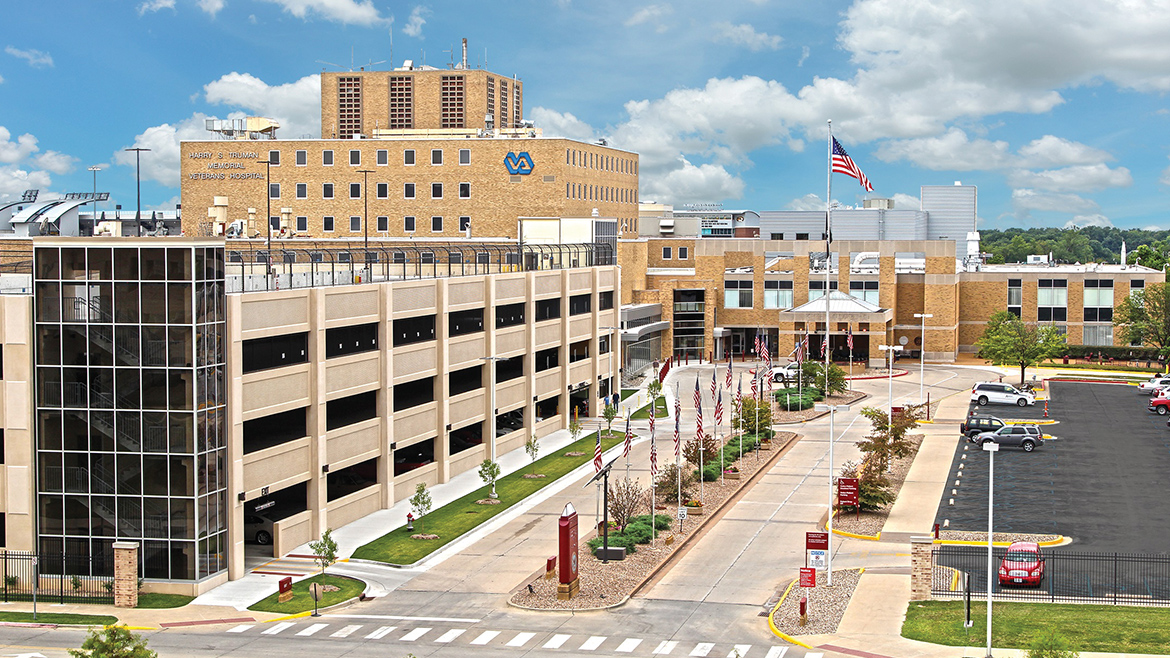
After she got back from her deployment in Iraq, Heather Brown couldn’t sleep. When she wasn’t at work or attending class at MU, she shut herself off from others.
Asking for help can be painful for those experiencing a mental health crisis. For members of the military, the stigma surrounding mental health and treatment is debilitating. “I didn’t want to do anything,” Brown says.
When she came back from her deployment in April 2004, Brown tried to re-enter the life she had left as a student at MU. However, that life became challenging. She knew she needed help, but she waited a few months before asking for it.
“It was one of those things where I felt like there was something wrong with me, that I was broken,” she says. “It took a long time for me to understand that there’s nothing wrong with me, that this is a normal response to those kind of stimuli and really just look past that stigma.”
Brown’s mom, a veteran herself, informed her about the mental health care offered by the VA and advised her to get help. Once she learned more about the VA, one of her sergeants walked her to the VA admissions office in Columbia and told her, “They’ll take good care of you.”
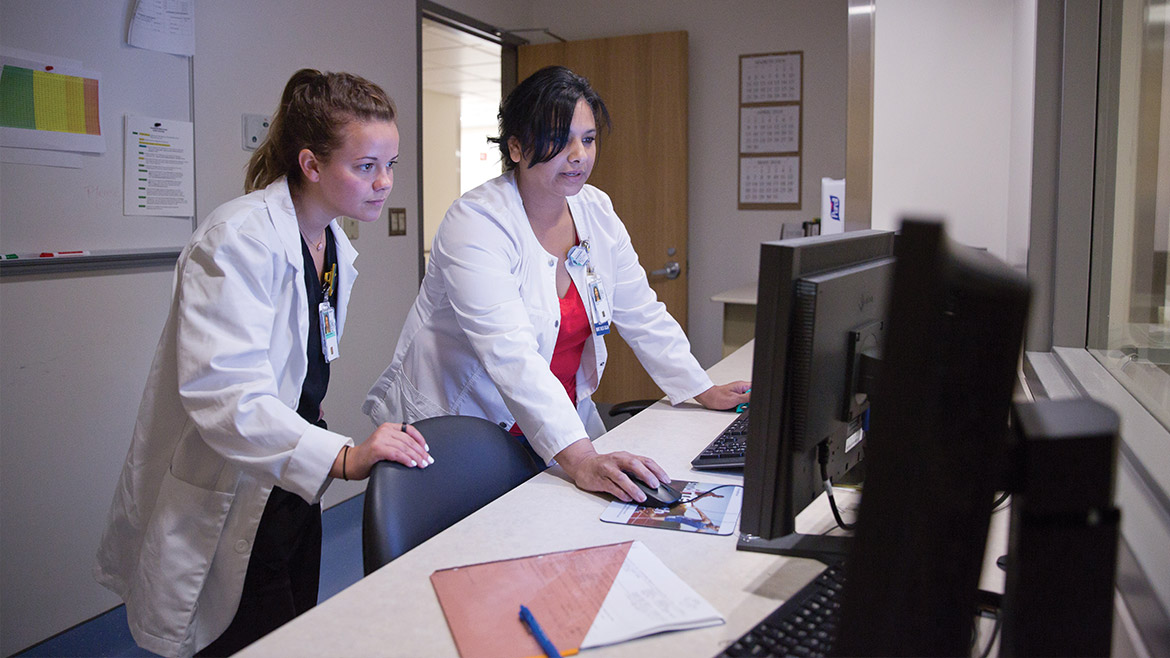
A Hospital’s Coming of Age
Founded in 1972, Harry S. Truman Memorial Veterans’ Hospital is a 126-bed facility in Columbia offering full inpatient and outpatient services to about 40,000 veterans from 43 counties in Missouri and one county in Illinois. Veterans’ needs are met at Truman VA’s main campus in Columbia or through eight community-based outpatient clinics.
During the founding of Truman VA, Director David Isaacks says, there was a big push in the U.S. to support medical training and academic affiliate hospitals. Columbia was chosen as the location for the hospital in part due to its affiliation with the MU medical program. Isaacks said MU even deeded the land to the federal government for the purpose of building the hospital. When the hospital was first starting out, during the midst of the Vietnam War, it was primarily a psychiatric hospital. Over the years, Truman VA has morphed into the academic affiliate, research-based hospital that it is today. Now, the hospital offers veterans comprehensive primary care, behavioral health care, and all inpatient and outpatient care — basically everything besides pediatrics and labor and delivery. The mission of Truman VA is to “honor our Veterans through partnership in optimizing their health and well-being through exceptional care, education, and research,” according to the hospital’s Community Benefit Overview.
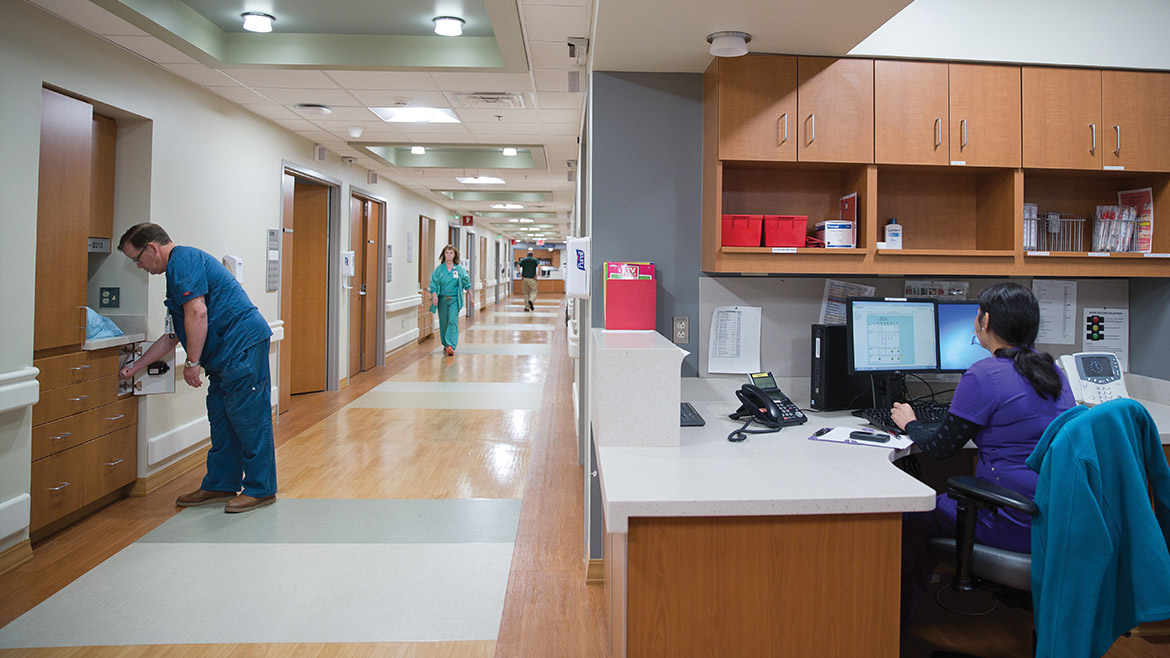
The bulk of the hospital’s focus centers around comprehensive primary care. However, the primary care provided by a VA hospital differs from that of a private sector hospital. VA patient care involves a patient-aligned care team, which means that veterans who come to the hospital work with health care professionals to improve their overall “whole person” health.
Instead of referring patients to outside medical providers for services such as psychological care, the VA’s comprehensive primary care includes those services.
“What happens in the VA is that when a patient comes in for their primary care, we wrap all the services around the patient,” Isaacks says. “What that does is it restores the veteran faster. Our goal is to keep them healthier and out of the hospital.”
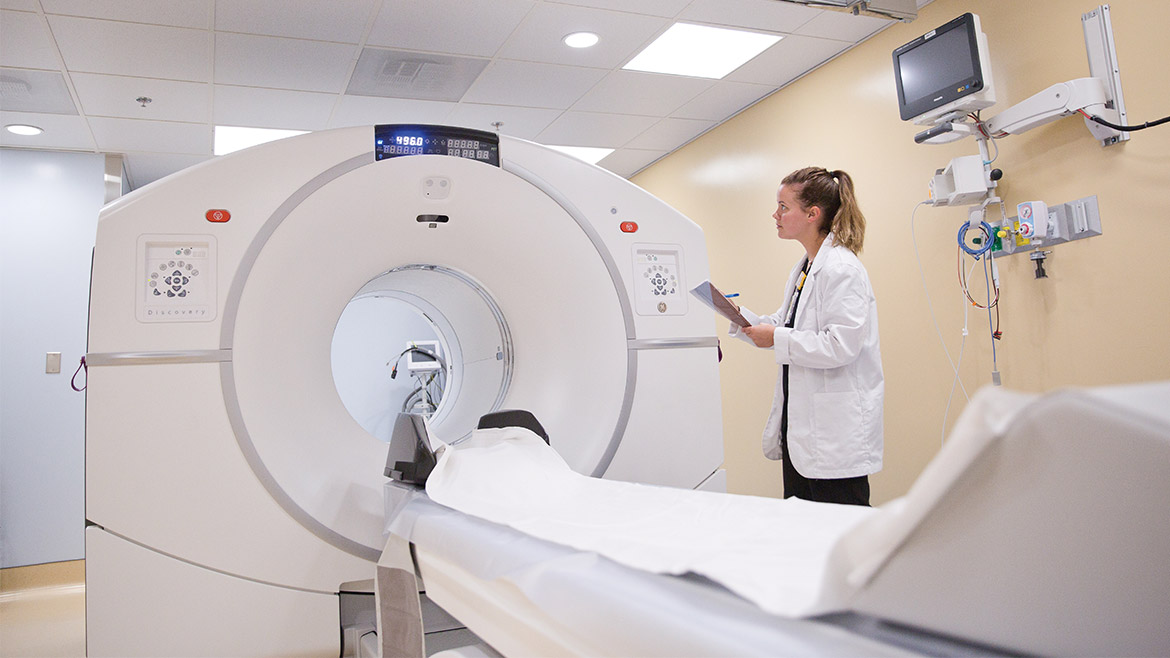
Making Strides
As an academic affiliate hospital, Truman VA maintains strong affiliations with MU’s School of Medicine, the Sinclair School of Nursing, the School of Health Professions and other health related programs. Truman VA trains about 900 medical students every year. The VA hospital and MU Health Care are the only academic affiliates in the middle of the state.
“There’s no way the university could produce that many doctors if there wasn’t an affiliate here,” Isaacks says. “If we weren’t producing these doctors, there’d be a significant shortage.”
According to the hospital’s Community Benefit Overview, more than 70 percent of all U.S. physicians have received training at VA facilities.
Isaacks stated that the number of employees at the hospital has grown by about 80 people over the last two years, and now they have 1,654 positions filled. The bulk of the hospital’s employees are in Boone County, but 10 to 12 employees are located at each of the eight outpatient clinics.
Isaacks said the overall operating budget of the hospital, which continues to grow, is about $330 million per year. This does not include Truman VA’s construction budget, which Isaacks said has been about $60 million over the past two years.
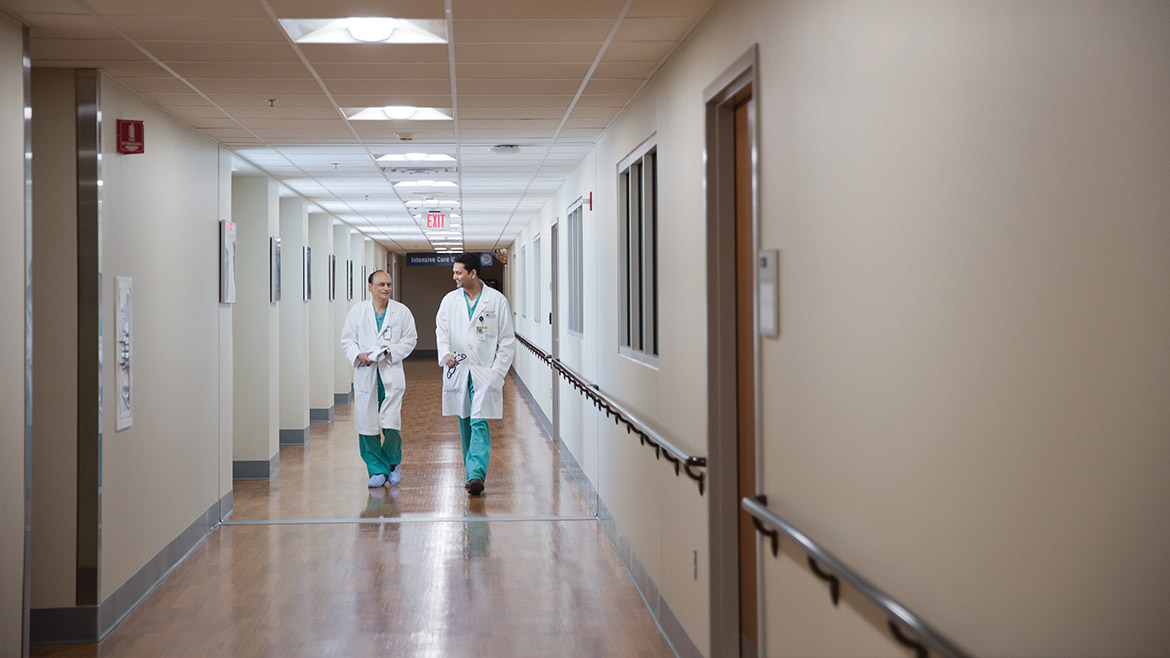
Due to both patient and employee satisfaction, Truman VA has consistently received many national and local awards and recognition. Jeff Hoelscher, public affairs officer, said this year employees ranked Truman VA as one of the top VA health care systems in the U.S. in both the Federal Employees Viewpoint Survey and the VA All Employee Survey.
In April, Truman VA was designated as an LGBTQ Healthcare Equality Leader by the Human Rights Campaign Foundation. The hospital was one of only 418 hospitals nationwide and one of 14 in Missouri to earn this designation. Three Truman VA staff members also recently received national LGBT Veteran Services I Care Certificates of Excellence from the Department of Veterans Affairs LGBT Health Program for outstanding LGBT veteran service. The hospital was also recognized with the 2018 Award for Innovative Best Practices in the city’s Mayor’s Climate Protection Agreement Awards in April.
In May, the Truman VA was recognized for 20 years of service to the Columbia Public Schools’ Partners in Education program. The Truman VA has partnered with Frederick Douglass High School since 1998. More than 200 Douglass High students have participated in the program, and several have found permanent employment at Truman VA.
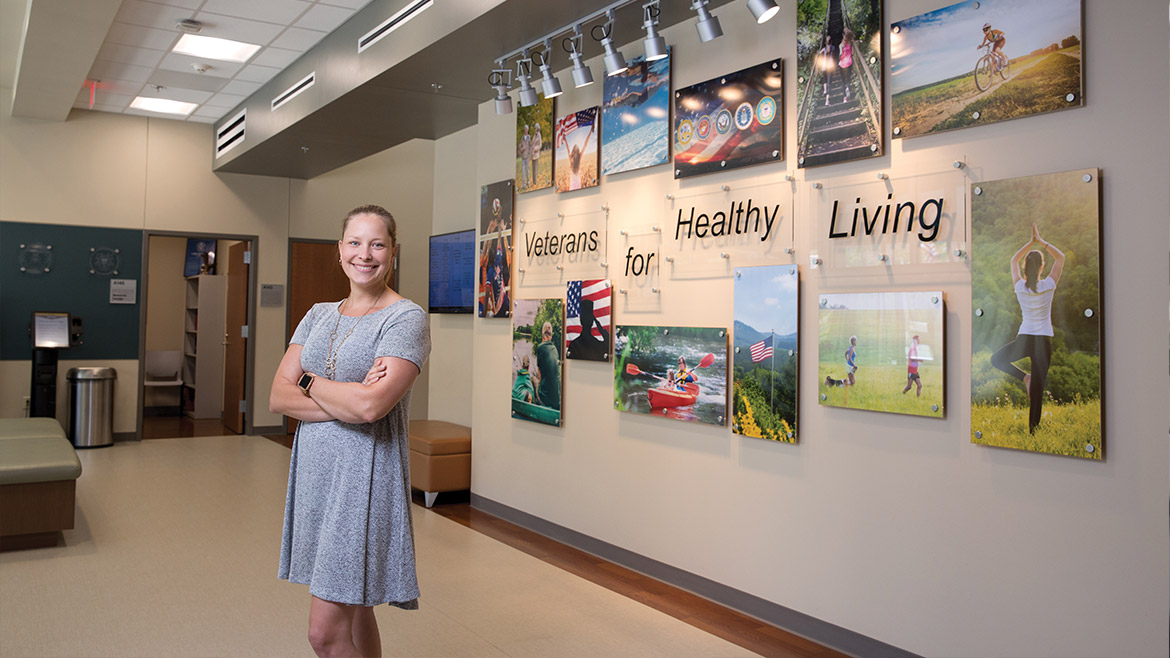
‘You’re not going to find a more friendly hospital.’
After being diagnosed with post-traumatic stress disorder, Heather Brown finally found the help she needed at Truman VA.
“It’s one of those things where you’d always heard the bad things about the VA, so I was kind of nervous,” she says. “They completely blew me away with how it was not anything like what people had told me.”
She said that if it hadn’t been for the enrollment staff and the staff members she met initially at the hospital, she doesn’t know if she would’ve came back after that first visit. She said the staff listened to her needs, and, eventually, she went through almost all of the services provided by the hospital.
Now, Brown works as the strategic partnership officer for the hospital. She says that she developed her passion for helping veterans when she first started working for the Truman VA as an enrollment coordinator.
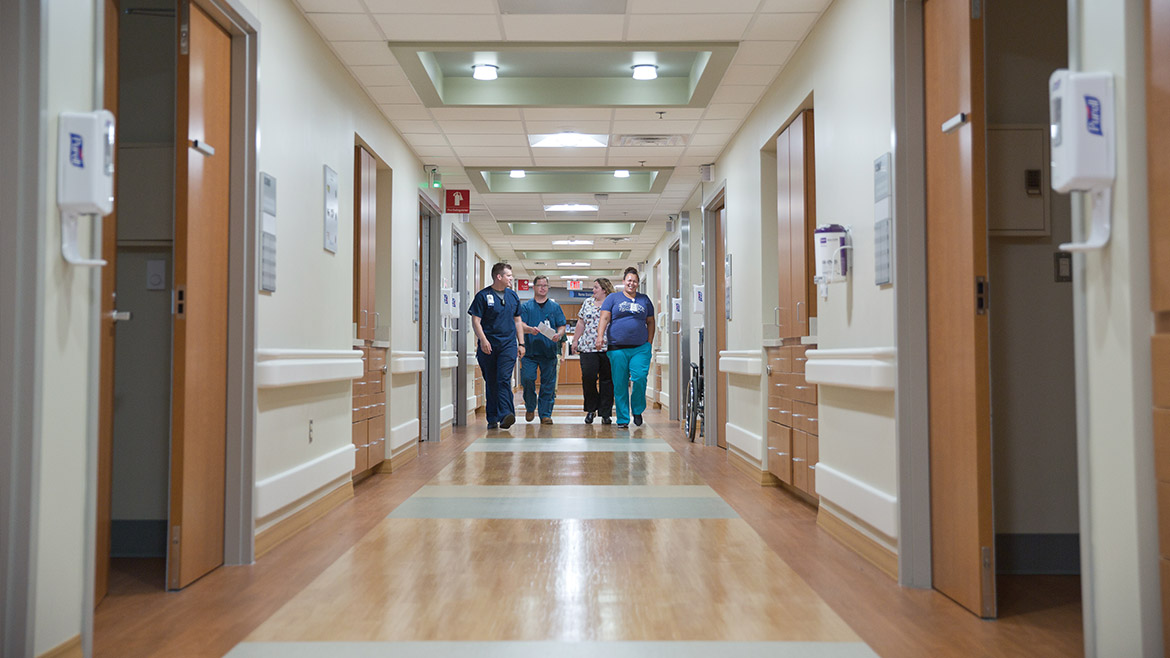
“So, the person who helped me the most, I actually started working with that person and I learned all about benefits and it really kind of started that passion to help veterans to really let them know what their benefits are, to get them the help that they need,” she says.
That passion for helping veterans has grown into her current role at the hospital. Now, Brown talks with veterans in the community and lets them know what the VA is and that “it’s not what you think and that we really are a fantastic hospital to go to,” she says.
Brown says that the stigma of asking for help is one of the biggest problems facing military health care. She and her team are working to break this stigma by attending health fairs and hosting events like May’s Mental Health Awareness Day at Logboat Brewing Co. She says the goal of the event was to get the message out there that it’s OK to ask for help — there’s nothing wrong with receiving treatment.
“You’re not going to find a friendlier hospital,” she says. “There’s an honest-to-goodness warmth. People here genuinely care about their veterans’ healthcare. We really want them to know that we care.” CBT






